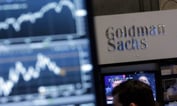We are nearly a year past the Securities and Exchange Commission’s adoption of its new ETF rule — Rule 6c-11.
In short, the requirements to launch and run an exchange-traded fund were made more uniform. So, it allows for quicker, simpler and cheaper launches, consistent reporting on issuer websites and some other technical changes mostly impacting issuers. But the direct impact to the shareholder is what prompted our team at Aptus Capital Advisors to alter our business as the rule became law.
New Tax Benefits
Passive ETFs that track an index have always had the ability to avoid capital gains distributions purely from the structure of the ETF wrapper. Quality active strategies couldn’t access the same benefit — until Rule 6c-11.
Why own a mutual fund that faces annual distributions as high as 10-30%, when I can own an ETF that does the same thing and will not distribute capital gains? Answer: There is no reason to.
The opportunities inside this rule are massive, so let’s unpack them one constituent at a time.
ETF Issuers
The rule shortens timeline and lowers cost to launch for ETF issuers, which should increase the number of entrants. Instead of being shackled to an index agent, a rules-based manager can be flexible and offer the ETF tax benefit to its shareholders. If you can attract enough investors, you can maintain flexibility and ultimately benefit from operational leverage.
ETF Owners
Rule 6c-11 is a huge win all around for ETF owners. The structural inefficiency of the mutual fund wrapper can be shed in favor of a tax-advantaged ETF wrapper. Even a high-turnover strategy can now shield its owners from capital gains distributions.









 September 11, 2020 at 02:14 PM
September 11, 2020 at 02:14 PM












